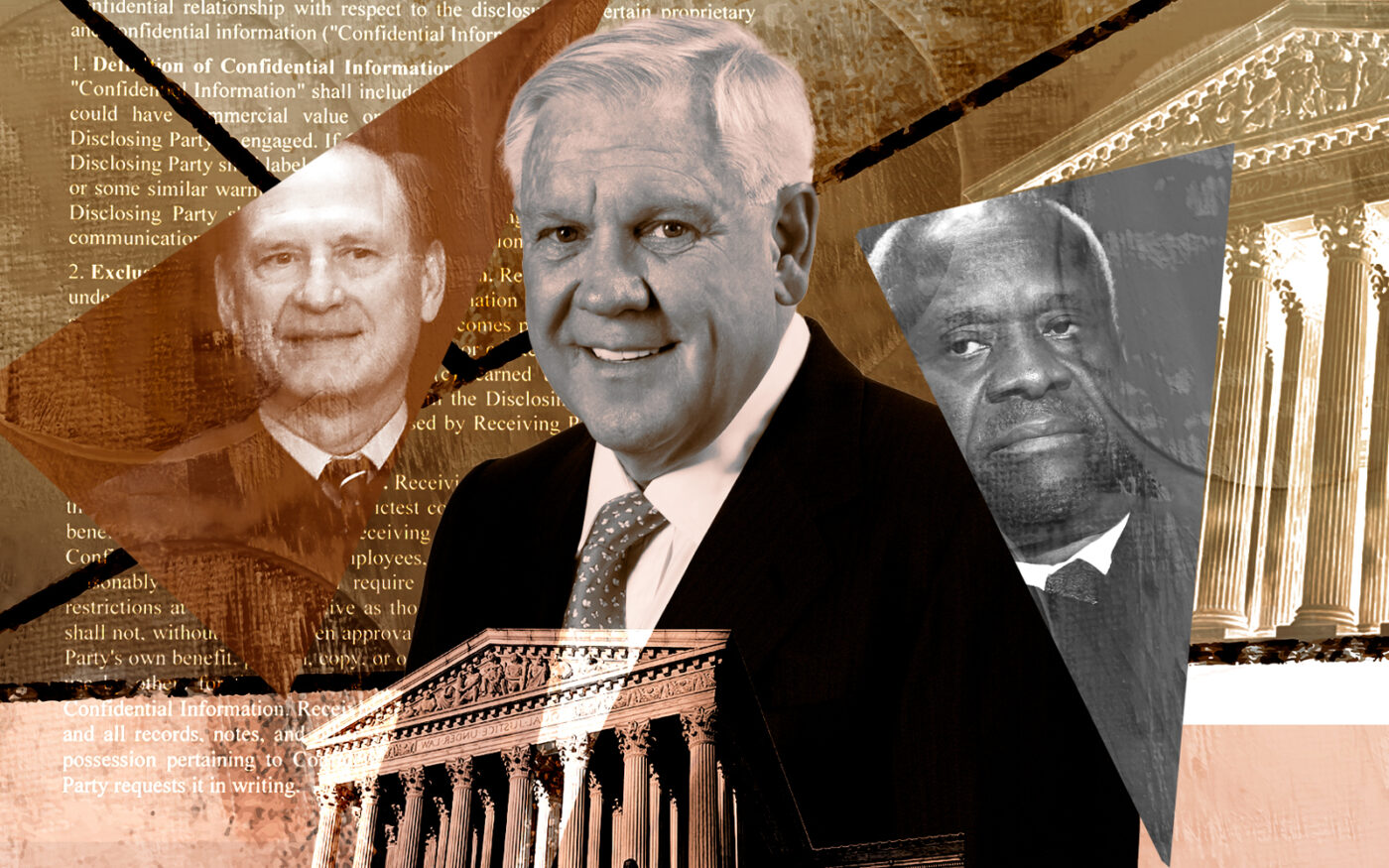The United States Supreme Court has created an ethics code for justices, and the relationship between Dallas real estate scion Harlan Crow and Justice Clarence Thomas planted the seeds for the change.
The ethics code is meant to consolidate the ethics rules guiding the conduct of justices in one concise document, the New York Times reported. It’s unclear how the code will be enforced, though.
“For the most part these rules and principles are not new,” the court said. But “the absence of a code, however, has led in recent years to the misunderstanding that the justices of this court, unlike all other jurists in this country, regard themselves as unrestricted by any ethics rules.”
Unlike lower federal judges who are bound by an ethics code, Supreme Court justices have historically operated without such constraints due to their special constitutional status. Chief Justice John Roberts previously conveyed that the court “takes guidance” from the ethics code applicable to other federal judges.
A call for judicial reform intensified in April, when ProPublica reported that Crow financed a number of luxury vacations on his private jet and megayacht over the course of decades, and Thomas and his wife, Ginni, were beneficiaries. Thomas didn’t disclose those trips, allegedly violating a law that requires justices to report gifts of $415 or higher.
Since then, other gifts from the former Crow Holdings CEO have come to light, including paid private school tuition for Thomas’ grandnephew. Crow also bought a Georgia home from the justice’s mother.
The scandal prompted Senate Democrats to go after Crow, recently announcing plans to subpoena the Dallas billionaire, after months of trying to obtain detailed documentation regarding his gifts to Thomas.
Robin Arkley, another billionaire who’s made his fortune in the real estate industry, has also been accused of providing similar gifts to Justice Samuel Alito.
The idea of an official ethics code for justices picked up steam in recent months, with justices Elena Kagan and Amy Coney Barrett publicly expressing support for such a policy. Justice Kagan noted in September that an ethics code would enhance public confidence in the court’s adherence to high standards of conduct.
—Quinn Donoghue
Read more



